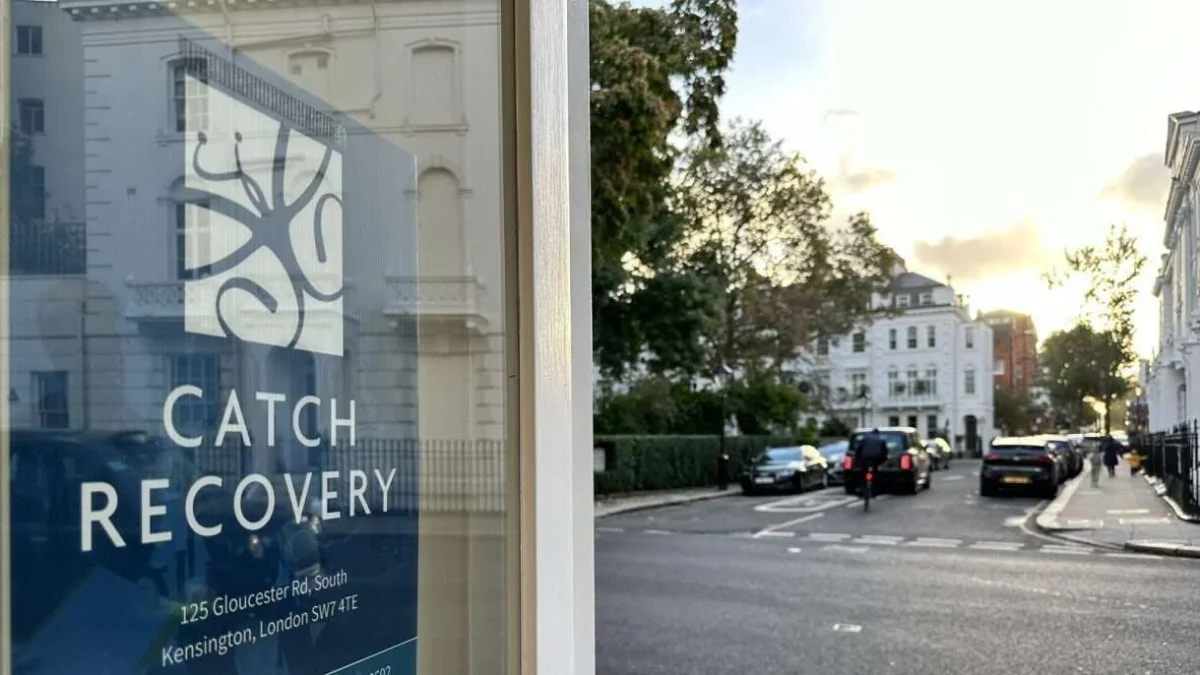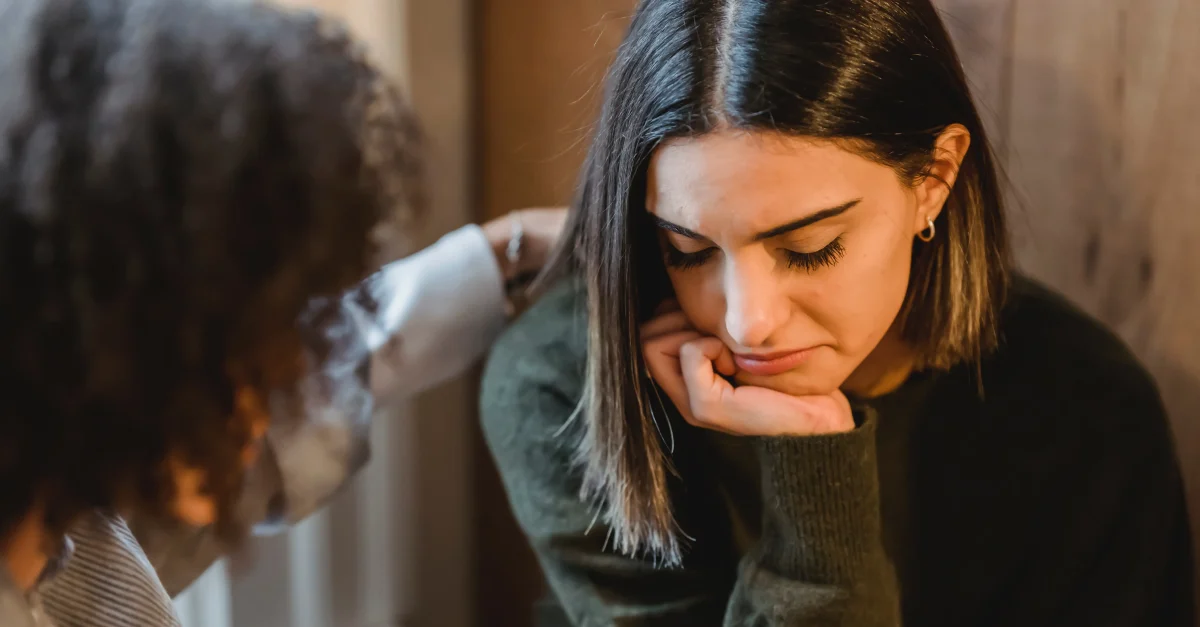
Private, specialist addiction counselling
CATCH Recovery in South Kensington, West London, is a private treatment provider for people in Ealing who are affected by addiction. Through careful assessment and personalised treatment programmes, we can help you or your loved one to recover.
Our highly skilled therapists are trained in a variety of techniques, and will tailor treatment to suit your individual needs. Our addiction specialists use a range of evidence-based treatment including Cognitive Behavioural Therapy (CBT), Dialectical Behaviour Therapy (DBT), family therapy, and Eye Movement and Desensitisation Reprocessing (EMDR).
With a private addiction practice in central London, we are able to offer a full addiction treatment programme to clients from Ealing.
Private Addiction Treatment Near Ealing
Our comprehensive private addiction services include:
- Assessments and screenings for addiction,
- Psychiatrist clinical reviews,
- Private detoxification from drugs and alcohol,
- Private CBT sessions, with a specialist therapist,
- Dialectical behaviour therapy,
- 12 Step recovery programmes,
- Recovery coaching,
- Private residential rehab at our inpatient clinics,
- Addiction counselling online from any location,
- Sober transportation and intervention.
Our treatment is primarily based on an outpatient basis, which means that you can access our team of highly experienced psychotherapists, recovery coaches and psychiatrists from your home in Ealing or anywhere else in the UK or Europe.
Residential Rehab Available From Ealing
We regularly welcome private patients from Ealing to our residential rehab facility in Scotland. This allows for a more intensive 4-6 week programme, which can also include medically-managed detoxification if needed. Using a sober transport service, we can arrange safe transfer from your home in London to our clinic.
Addiction counselling can help you to understand the causes of addiction, learn how to manage triggers and cravings, and develop coping mechanisms to prevent relapse.
Through therapy sessions, support groups, and evidence-based interventions, we help individuals understand the root causes of their addiction, develop healthier coping mechanisms, and rebuild relationships. We believe that with the right support, anyone can overcome addiction and achieve long-lasting recovery.
Alcohol and Drug Issues in Ealing
The consequences of addictive behaviours extend beyond the individual, affecting loved ones and the larger community.
- In Ealing, these effects are strikingly apparent, with an estimated 2,419 individuals struggling with opiate and crack addiction, including 2,099 opiate users and 1,441 crack users.
- With Ealing’s unmet need rates of 82% for alcohol, 64% for opiates, and 67% for crack, it is clear that many individuals are not receiving the vital support they require.1

Download Brochure
What Are The Signs of Addiction?
It is often extremely difficult for the person affected by addiction to realise that they have a problem, even when it can seem obvious to their friends and family. What addiction looks like varies considerably from person to person, but there are some typical signs to look out for. These can include:
- Not being able to reduce or stop doing something, such as taking drugs or alcohol, gambling, or obsessively playing online games
- Developing cravings for a substance or feeling compelled to do an activity
- Becoming preoccupied and anxious about when the next opportunity will be to take a substance or engage in a particular behaviour
- Neglecting relationships and responsibilities, with frequent difficulties at work or with friends
- Higher tolerance for alcohol or drugs, leading to more frequent use and larger quantities
- Engaging in risky behaviour that could result in physical harm or legal issues
- Changes in mood and relationships, sometimes becoming more withdrawn from friends and family
- Stopping usual activities and being secretive about whereabouts
- A change in physical appearance, with less time spent on self-care
Please know that addiction is not your fault. Addiction treatment can help you to understand the causes of addiction, and learn how to cope with triggers and cravings. Whether you live in Ealing or elsewhere, get in touch today – we can help you or your loved one to recover from addictive behaviours.
What to Expect from Addiction Counselling Near Ealing
Our private addiction treatment is flexible, and tailored to suit every individual that we meet. Our counsellors understand the unique challenges of addiction recovery and will work closely with you to develop a personalised plan that considers your specific needs.
In counselling sessions, our highly skilled therapists will help you to make sense of your experiences and enable you to develop coping strategies to manage your addictive behaviour. Your therapist will provide a safe and confidential environment where you can open up and talk about things without feeling judged or ashamed.
Counselling sessions can take place in-person in Kensington (London) and remotely, allowing you genuine flexibility to choose whichever format suits you best.
Online Therapy
Online counselling has become increasingly popular as it offers the same benefits as traditional in-person therapy, but with more convenience as clients can have sessions from wherever they choose to be.
Also, in addition to the practical benefits, some people find online counselling more private and anonymous than face-to-face sessions, and so feel more comfortable asking for help.
Plus there are potential therapeutic benefits too. Research carried out during the Covid pandemic suggests that because clients and therapists are physically apart, online therapy can create a sense of safety which enables people to speak more openly and freely than they might do in person. 2
At CATCH we use a secure online platform, enabling you to see and speak to your therapist live on screen.
Support Groups in Ealing
Regularly attending a support group can be invaluable for addiction recovery. Groups can provide a safe and supportive environment where you can share your experiences, helping you to maintain recovery and avoid relapse.
Alcohol and Drug Addiction Services:
1. EACH Ealing: offers counselling and support services for individuals and families affected by alcohol or drug use. Self-refer by calling 020 8579 4529 or ask a professional to refer you.
2. Ealing RISE: provides support and treatment options for Ealing residents who are over 18 and have used alcohol or drugs in the last 3 months. Call the main service for more information.
3. Recovery Intervention Services Ealing (RISE): offers free, confidential support and treatment services for adults experiencing problems with drugs and/or alcohol in Ealing.
Gambling Addiction Services:
1. GamCare: offers free information, support, and counselling for people with gambling problems in the UK. Call the National Gambling Helpline at 0808 8020 133.
2. National Problem Gambling Clinic: provides treatment for people living in England aged 13 and over who are experiencing gambling harms. Offers various services including individual psychological support, couples therapy, support groups, and family therapy.
Support Groups:
1. Alcoholics Anonymous: offers support for individuals struggling with alcohol addiction.
2. Narcotics Anonymous: provides support for individuals dealing with drug addiction.
3. Cocaine Anonymous: offers support for individuals struggling with cocaine addiction.

Start Your Recovery Journey Today
Evidence-Based Therapies
At CATCH, our counsellors are all qualified in a variety of different therapies which have been shown to be beneficial for people with addictions. 2,3,4,5
These include:
- Cognitive Behavioural Therapy (CBT): CBT enables people to notice unhelpful patterns in their thinking and behaviour, becoming aware of how their background thoughts and beliefs might be contributing to their addiction. CBT also teaches new skills for managing cravings.
Eye Movement Desensitisation and Reprocessing (EMDR): in EMDR therapy, the therapist uses bilateral brain stimulation to help the client process difficult memories. This can help to reduce the emotional impact of the traumatic memories, as well as supporting the client to adapt some of their core beliefs which might be driving the addictive behaviour.
Why Choose CATCH Recovery in London?
Dialectical Behaviour Therapy (DBT): DBT is designed to help people with addictions manage intense emotions such as anger, depression, and anxiety without becoming overwhelmed and acting on their strong feelings.
Family therapy: family members are supported as they discuss the impact that their loved one’s addiction has had on them, and take steps to repair their relationships with each other. Families learn how to improve their communication and resolve conflict, helping the person with addiction to maintain their recovery.
Group therapy: taking part in group sessions provides individuals with peer support, encouragement, and a place to share experiences, all of which helps to create a sense of community.
Motivational interviewing: through this type of counselling, clients are encouraged to consider their goals for recovery and feel motivated to achieve them.
At CATCH Recovery, we understand that recovering from addiction can be difficult, and that the journey requires an individualised approach. We strive to provide comprehensive and compassionate care to everyone who comes through our doors.
So why not get started on this journey today? Contact CATCH Recovery for private addiction counselling in London, and get the support you need to heal right away.
FAQs
How Do I Find a Suitable Therapist?
Because of the high demand, finding an addiction therapist can be difficult. Organisations such as the British Association for Counselling and Psychotherapy (BACP) can, however, provide resources and referrals. Furthermore, the CATCH team can assist individuals in locating the most appropriate therapist for their specific needs.
What Is the Most Effective Psychological Treatment for Addiction?
While there is no one-size-fits-all solution, a combined approach that includes evidence-based therapies, individualised support, and ongoing care produces positive results. Private therapy, with its emphasis on tailored care and individual attention, frequently provides greater support and results.
How Long Should I Attend Therapy?
The length of therapy varies depending on several factors, including the severity of addiction, individual progress, and personal goals. A therapist can collaborate with the individual to create a treatment plan that includes a timetable for therapy sessions.
References
- https://www.ealing.gov.uk/download/downloads/id/14659/focus_on_drugs_and_alcohol_-_jsna_2019.pdf
- 1 Sayers, J. (2021). Online psychotherapy: transference and countertransference issues. British Journal of Psychotherapy; 2021, 37, 223-233. https://doi.org/10.1111/bjp.12624
- 2 Bador K, Kerekes N. Evaluation of an Integrated Intensive Cognitive Behavioral Therapy Treatment Within Addiction Care. J Behav Health Serv Res 47, 102–112 (2020). https://doi.org/10.1007/s11414-019-09657-5
- 3 Cavicchioli M, Movalli M, Vassena G, Ramella P, Prudenziati F, and Maffei C. The therapeutic role of emotion regulation and coping strategies during a stand-alone DBT Skills training program for alcohol use disorder and concurrent substance use disorders. Addictive Behaviors. 2019;98. [Accessed 23 August 2024].
- 4 Substance Abuse and Mental Health Services Administration (SAMHSA). Family Therapy Can Help. Available here. [Accessed July 2024]. 5 American Psychological Association. What is EMDR therapy and why is it used to treat PTSD?. Available here. [Accessed 10 July 2024].